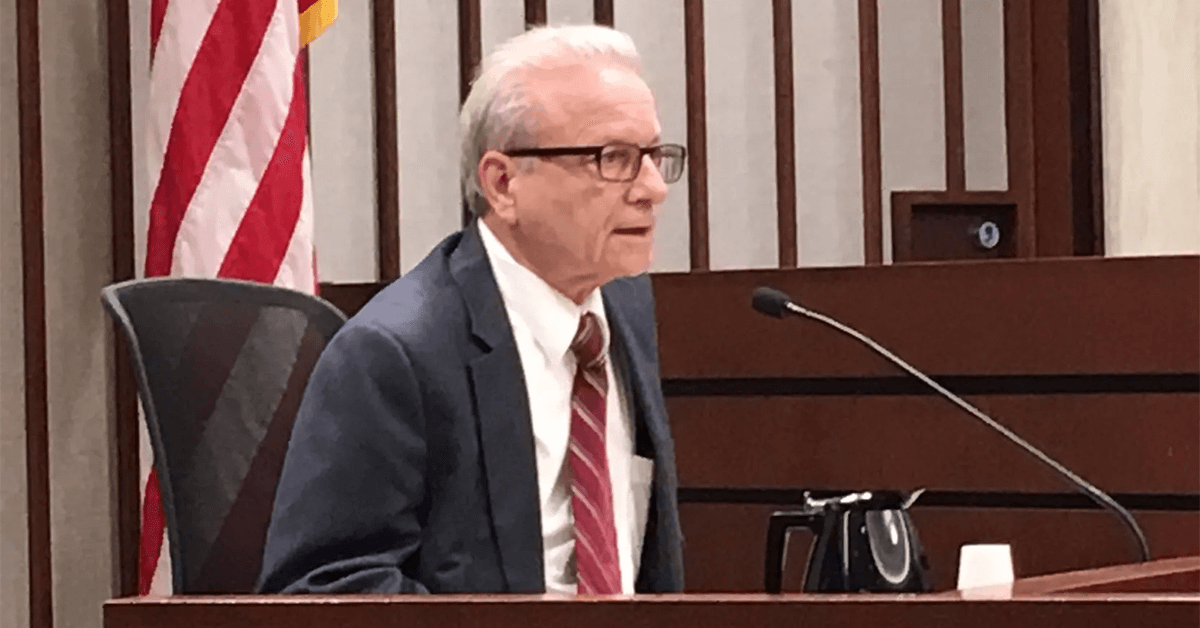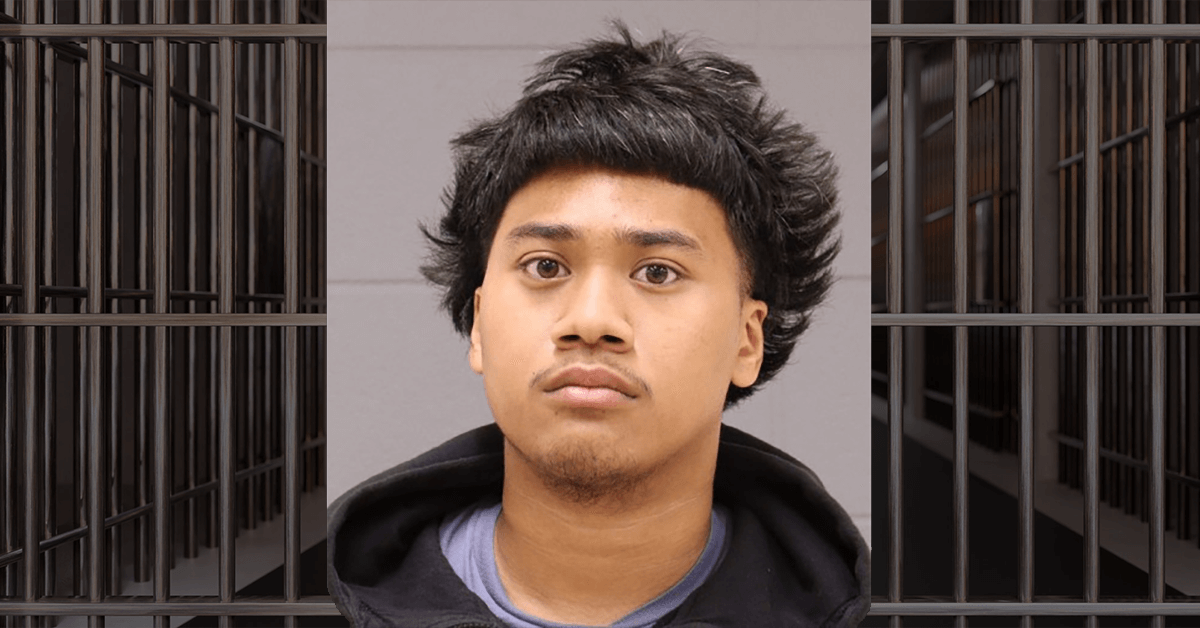Warren's Marijuana Review Committee Violated Open Meetings Act, Supreme Court Finds

The Michigan Supreme Court recently issued an opinion in the case of Pinebrook Warren LLC vs. City of Warren, overturning a decision by the Court of Appeals and affirming the Macomb County Circuit Court's ruling. The case centers on the medical cannabis licensing process in Warren and the actions of the city's Marijuana Review Committee.
Background of the Case
The Marijuana Review Committee was responsible for reviewing and scoring applications for medical cannabis licenses. The main issue in the case was whether this committee functioned as a decision-making public body subject to the Open Meetings Act (OMA). The Supreme Court ruled that the committee violated the OMA by conducting multiple closed-door meetings to review and score over 60 applications for medical cannabis licenses.
Based on the committee's recommendations, the Warren City Council awarded licenses to 15 applicants. However, several companies that were not awarded licenses filed lawsuits in Macomb County Circuit Court. They claimed the committee's scoring system was flawed and that it violated the OMA by holding 13 meetings that were not open to the public.
Judicial Decisions
Judge Carl Marlinga of the Macomb County Circuit Court ruled in April 2020 that the committee had indeed violated the OMA, rendering all licenses issued by the committee invalid. Despite this, the Warren City Council approved a settlement in August 2021 allowing the originally awarded 15 licenses to remain and added three more licenses, bringing the total to 18. Judge Marlinga reiterated his decision in September 2021, stating that the settlement violated his order and declared the licenses void, which led to the case moving to the appellate court.
On July 31st, 2024, the Michigan Supreme Court determined that the Marijuana Review Committee acted as a "governing body" because it effectively ranked and decided which applicants would receive licenses, a role not performed by the city council. As a result, the committee was required to comply with the OMA.
Next Steps
The Supreme Court remanded the case to the Court of Appeals to assess whether the meetings that complied with the OMA sufficiently addressed the violations and to consider other issues preserved by the parties involved.
The five-member Marijuana Review Committee included Warren City Council President Cecil St. Pierre, former councilmen Ron Papandra and Steve Warner, former city attorney Ethan Vinson, and former public service director Richard Sabaugh. Former council members Robert Boccomino and Keith Sadowski served as alternates.
Reactions and Future Implications
Reni George, vice president of government affairs for Pure Roots LLC, one of the plaintiffs, expressed approval of the Supreme Court's decision. He expressed hope that this ruling would allow Pure Roots to establish a location in Warren.
"We would like to figure out how to move forward and talk to our legal counsel and figure out what the city is going to do with regard to recreational marijuana," said George. "We will work with the current administration and city council and invest more dollars to try and make this business happen in Warren."
Pure Roots currently operates in Lansing, Ann Arbor, Battle Creek, and Center Line. George emphasized the importance of transparency in the licensing process, stating, "We are happy because we believe there was a violation of the OMA. Proceedings should be an open process based on merit, the ability to invest dollars in Warren, build a facility and remain compliant."
He added, "It should not be about people who have made political donations to members of the city council or have had previous interactions with the city."
Flint Township Murder Stems from Cannabis Theft: Three Charged

In a tragic culmination of events linked to a marijuana theft, three individuals have been charged in connection with the fatal shooting of Xavier Johnson in Flint Township. The incident, which unfolded on November 12th, 2023, highlights the escalating violence that stemmed from a dispute over stolen cannabis.
Charges and Legal Proceedings
Michael Allen Saylor, a 17-year-old, has been charged with multiple felonies, including the shooting death of 19-year-old Xavier Johnson. Saylor faces serious charges such as first-degree premeditated murder, assault with intent to murder, aggravated stalking, discharging a firearm at a building, and five counts of felony firearm. He is being held without bail.
The conflict that led to this violent encounter reportedly began with the theft of marijuana from Saylor's mother's home. This theft ignited a series of threats and retaliatory actions between Saylor and Johnson, as well as their associates.
Tony Joseph Mireles II, 19, another suspect in the case, faces eight felony counts. These include discharging a firearm from a vehicle, conspiracy to discharge a firearm from a vehicle, three counts of felony firearm, two counts of discharging a firearm at a building, and aggravated stalking. Mireles remains in custody with a $40,000 cash/surety bond.
The third individual charged, Alex Alton Mills, 19, faces a single count of carrying a concealed weapon. Mills was released on a $10,000 cash/surety bond, as per court records.
The Incident
The tragic shooting incident occurred in the 3300 block of West Dayton Street near Lavelle Road and Pasadena Avenue. According to the police, the incident began with shots being fired from a vehicle driven by Johnson. Saylor, allegedly inside the targeted house, retaliated by firing back at the vehicle, ultimately striking Johnson.
Despite being critically injured, Johnson managed to drive about a mile to a residence in the 3300 block of Bertha Avenue in Mt. Morris Township. He succumbed to his injuries shortly after.
CRA Files Formal Complaint Against Sky Labs for Regulatory Violations

The Cannabis Regulatory Agency (CRA) has formally lodged a complaint against Sky Labs, LLC, an adult-use cannabis processor in Michigan, for multiple violations under the Michigan Regulation and Taxation of Marihuana Act (MRTMA). The complaint, filed on July 26th, 2024, details several breaches of regulatory compliance, particularly concerning the tracking and sourcing of tetrahydrocannabinolic acid (THCA) isolate.
Background and Violations
Sky Labs, holding license number AU-P-000157, operates at 9421 N. Dort Highway, Mt. Morris, MI. The CRA initiated an investigation on March 20th, 2024, prompted by discrepancies in the statewide monitoring system (Metrc). The investigation revealed that Sky Labs had accepted THCA isolate from unlicensed sources and improperly logged these transactions in Metrc.
Key Findings:
-
Improper Sourcing and Recording: Sky Labs received 30,000 grams of THCA isolate on March 6th and 7th, 2024, incorrectly recorded as sourced from a Michigan medical marijuana processor. The processor denied any such transfer.
-
Further Irregular Transfers: On March 13th and 14th, 2024, Sky Labs recorded receiving an additional 100,010 grams of THCA isolate from another processor, which also denied the transfer. It was found that these isolates were actually sourced from a Colorado business.
-
Failure to Tag and Track: Sky Labs admitted to not entering the product into Metrc upon receipt in January 2024, delaying this process until March 2024, well beyond the acceptable period for such entries.
-
Compliance Testing Issues: During an unannounced visit on April 22nd, 2024, CRA staff found THCA in the lobby of Sky Labs. Further, a compliance test on April 19th, 2024, showed discrepancies in how the product was sampled and recorded.
-
Surveillance Failures: The company also failed to maintain accurate timestamped surveillance footage as required, with discrepancies noted during the compliance test review.
Specific Violations Alleged:
- Unauthorized purchases or transfers of marijuana products from non-licensed establishments.
- Failure to accurately enter transactions and inventory into Metrc.
- Use of cannabinoid ingredients not sourced from licensed handlers.
- Inadequate surveillance systems that do not correctly display time and date.
- Possession of untagged marijuana products.
- Interference with compliance testing procedures.
Consequences and Next Steps
The CRA has indicated its intent to impose sanctions on Sky Labs, potentially including fines, suspension, revocation, or non-renewal of its license. Sky Labs has the right to request a hearing within 21 days to contest these actions or to seek a compliance conference to address the allegations informally.
Contact and Response Details
Sky Labs must submit hearing or compliance conference requests in writing, either by mail, in person, or by email, to the CRA with a copy to the assistant attorneys general handling the case.
For more information, the full complaint can be accessed through the CRA or the legal representatives listed in the document.
Michigan Cannabis Retailer Fights Los Angeles' Social Equity Licensing in Court

A Michigan cannabis retailer is contesting Los Angeles' social equity licensing program, asserting that it unfairly favors California residents. Variscite Inc. and its owner, Kenneth Gay, argue that the program violates the Constitution's dormant commerce clause by discriminating against out-of-state applicants.
In a response brief filed recently, Variscite contends that the city's motion to dismiss the case is based on erroneous arguments. The brief critiques the city's attempt to distinguish a First Circuit decision, which applies the dormant commerce clause to cannabis markets, and questions the relevance of a repealed 2013 memorandum from then-Deputy Attorney General James M. Cole of the U.S. Department of Justice.
Variscite's brief highlights that the First Circuit correctly recognized that Congress, through the Rohrabacher-Farr Amendment, has significantly decriminalized medical cannabis by prohibiting federal prosecution of state-legal cannabis operations. The company argues that this decision does not misconstrue federal law but rather affirms that the dormant commerce clause applies regardless of the federal legality of the interstate market.
The First Circuit's opinion, according to Variscite, only addressed medical cannabis because Maine conceded it was unlikely to succeed in defending its residency requirements for recreational use licenses. Variscite maintains that Congress did not exclude cannabis markets from the dormant commerce clause through the Controlled Substances Act (CSA). While the CSA allows Congress to criminalize the interstate cannabis market, the dormant commerce clause restricts states from favoring their residents over those from other states.
Variscite further argues that Congress, by passing the Rohrabacher-Farr Amendment and provisions allowing the rescheduling or removal of cannabis from Schedule I, has implicitly supported an interstate cannabis market free from federal intervention. Therefore, the dormant commerce clause should apply, regardless of cannabis's federal legal status.
The lawsuit claims that Los Angeles' social equity criteria, which prioritize applicants from specific Southern California areas or those with California cannabis convictions, unconstitutionally favor state residents. Jeffrey Mark Jensen, Gay's attorney, has contested similar residency requirements nationwide.
In May, Los Angeles renewed its motion to dismiss the case after the Ninth Circuit allowed one of Gay's businesses to challenge Sacramento's residency requirements. The Ninth Circuit found that abstention was not warranted since the ordinance clearly mandated residency for equity program participation.
The Central District of California paused Variscite's case during the Sacramento litigation.
Variscite's recent brief asserts that residency requirements do not advance the CSA's goals, as they do not prevent cannabis sales but rather ensure state residents benefit financially. The brief also criticizes the state's justification for excluding out-of-state owners, noting that Los Angeles permits up to 49% out-of-state ownership of licenses and allows nonresidents with a California cannabis conviction and residency in a disproportionately impacted area to fully own a license.
Moreover, Variscite disputes the city's reliance on the 2013 Cole memorandum, which advised against cannabis diversion enforcement. The memorandum, repealed in 2018, does not pertain to Variscite's lawsuit, which focuses on interstate commerce rather than cross-state cannabis movement.
Lastly, Variscite urges the court not to dismiss its damages claims, emphasizing that it seeks compensation for constitutional violations, not lost cannabis sales profits. Variscite argues that the city's lottery, held while the case was pending, constitutes a redressable constitutional breach.
Indiana Men Face Legal Consequences in Michigan for Concealed Firearms During Cannabis Purchase

In a recent case that underscores the legal challenges of navigating differing state laws, two South Bend residents, a father and son, were sentenced in Berrien County Trial Court for attempting to carry concealed firearms without proper licensing while in Michigan to purchase cannabis.
Incident Overview
The case stems from an incident on January 5th in Bertrand Township, Michigan, when a vehicle carrying Jason Robert Miltroka, 47, and his son Gino Anthony Miltroka, 20, was stopped by police. Both men had traveled from Indiana to Michigan with the intention of purchasing cannabis, a substance that remains illegal in their home state.
Cannabis Purchase and Legal Implications
Michigan, which legalized recreational cannabis in 2018, attracts many out-of-state visitors who come to legally purchase cannabis products. Jason and Gino Miltroka were among those visitors, seeking to take advantage of Michigan's more permissive cannabis laws. However, their plan was complicated by their failure to understand Michigan's strict regulations on carrying concealed firearms.
Jason Robert Miltroka's Sentencing
Jason Miltroka was sentenced to 10 days in jail, credited for two days already served, and ordered to pay $258 in fines and costs. His firearm was also forfeited. This marks his first felony conviction, although he has prior convictions related to drinking and driving. Defense attorney Scott Graham highlighted Miltroka's stable residence and employment, which he hopes to maintain despite his conviction.
During court proceedings, Miltroka admitted that he did not realize the differences in firearm laws between Indiana and Michigan, though he was aware of the disparity in cannabis laws. Judge Jennifer Smith acknowledged his desire to keep his job but stressed the importance of understanding the responsibilities associated with carrying a weapon. She noted that Miltroka knowingly crossed state lines to purchase cannabis, consumed alcohol in the vehicle, and used both alcohol and cannabis while on bond, pointing to a pattern of poor decision-making.
Gino Anthony Miltroka's Sentencing
Gino Miltroka received a similar sentence a week after his father: 10 days in jail with two days credited, $258 in fines and costs, and the forfeiture of his firearm. His defense attorney, Daniel French, described the incident as a series of bad choices stemming from a lack of understanding of state laws. Gino Miltroka admitted his failure to research the legal requirements for carrying a firearm in Michigan.
Judge Smith reiterated the points made during Jason Miltroka's sentencing, emphasizing the responsibility to understand and comply with state laws when carrying a firearm. She pointed out that Gino was driving with a suspended license, was not fully truthful with officers, and violated bond conditions by using cannabis.
Legal Implications and Considerations
This case highlights the complexities and potential pitfalls of differing state laws regarding firearms and cannabis. Indiana's strict cannabis prohibition contrasts sharply with Michigan's legalized market, leading to legal complications for residents crossing state lines. The convictions of Jason and Gino Miltroka underscore the importance of understanding and adhering to the legal requirements of any state one enters, particularly regarding firearms and controlled substances.
As more states move towards legalizing cannabis, the need for clear communication and education about the accompanying legal responsibilities becomes increasingly crucial. Visitors to states with legal cannabis must be aware of and comply with all state laws to avoid similar legal issues.
Man Sentenced for Theft of Vape Pens, Guns, and Cannabis Products

A man involved in the theft of thousands of vape pens, firearms, and cannabis products received a minimum prison sentence of 18 months this week.
Kevin H. Nguyen was arrested last year and subsequently confessed to selling stolen goods and purchasing stolen firearms, as indicated by court documents.
Authorities discovered the stolen items at Nguyen's residence in a mobile home park in Kent County's Gaines Township. The items included over 2,000 Breeze vape pens and hundreds of cannabis products.
Nguyen admitted to detectives from the Kent County Sheriff's Office that he knew the merchandise he was selling was stolen, court records show.
He faced several felony charges, including three weapons offenses and receiving and concealing stolen property. He pleaded guilty to three charges, leading to the dismissal of the others.
A judge in Kent County sentenced Nguyen to a prison term ranging from 1.5 to 5 years. He is currently held in the Kent County jail, awaiting transfer to the Michigan Department of Corrections.
Following his arrest in October, Nguyen told detectives that he was aware the items were stolen from dispensaries because the sellers were incarcerated, according to court documents.
During the search, detectives seized eight handguns, two of which were reported stolen. One handgun had a switch attached, converting it into a machine gun. Court documents also reveal that three additional switches were found during the search.
Nguyen acknowledged to detectives that he was aware the firearms were stolen when he purchased them.


 Helpful Links
Helpful Links